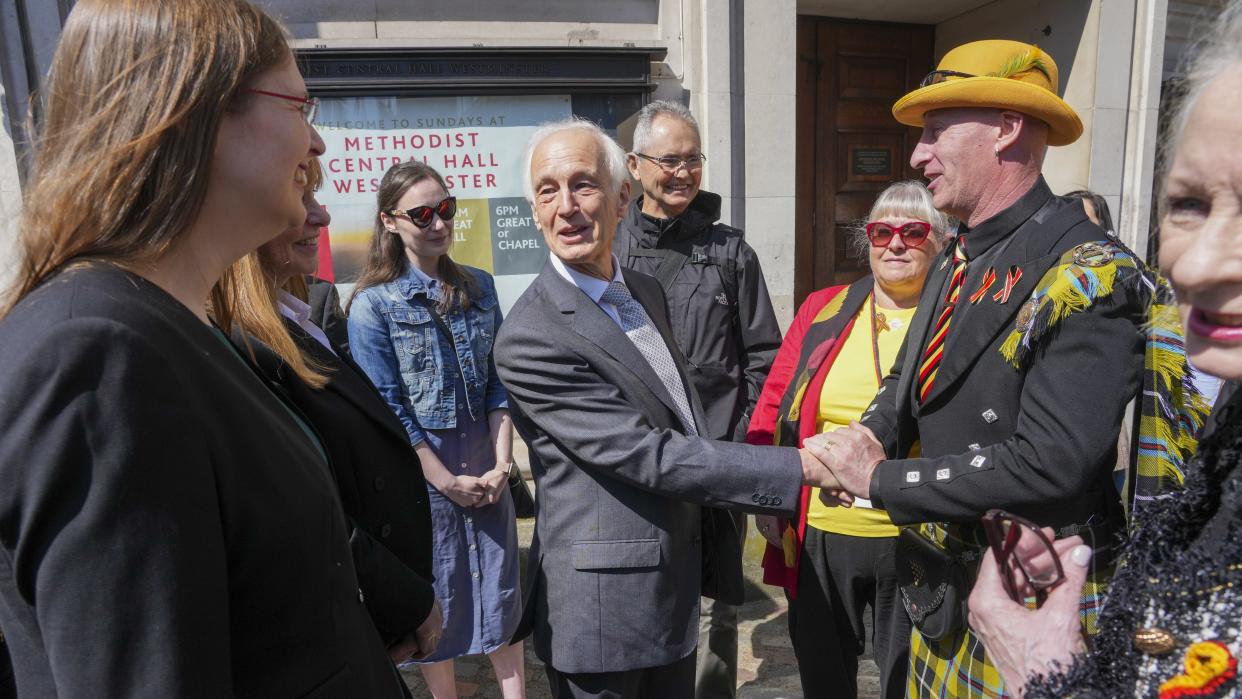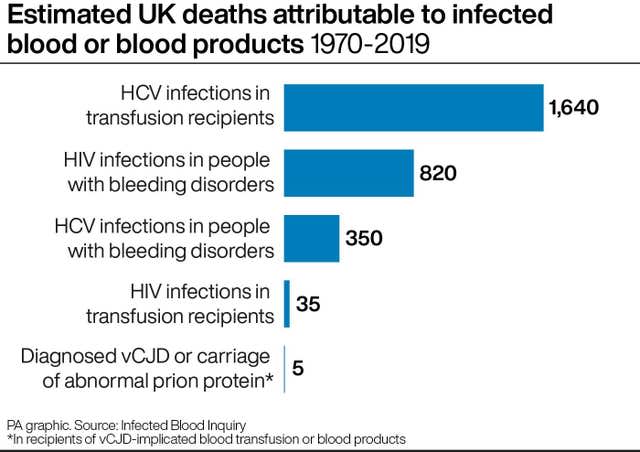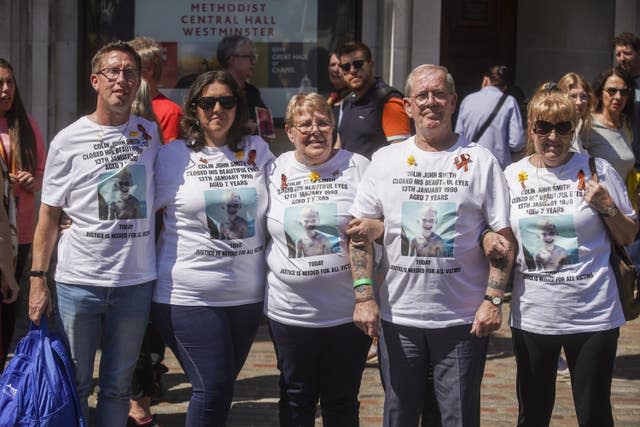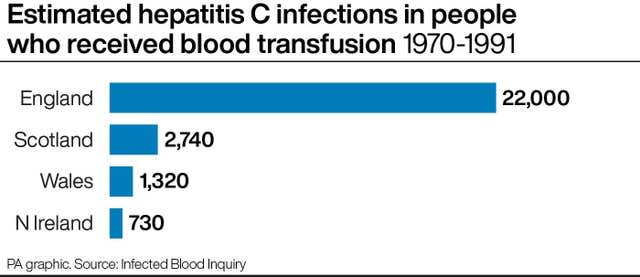Victims cry, hug and cheer chairman as Infected Blood Inquiry report released

Victims of the infected blood scandal hugged, cried and cheered the chairman of the inquiry after their decades-long campaign for justice.
Infected Blood Inquiry chairman Sir Brian Langstaff criticised a “catalogue of failures” that led to avoidable deaths in a statement at Central Hall in Westminster.
Sir Brian received a standing ovation and rapturous applause before delivering his remarks.
Campaigners and victims were among the audience, with some dressed in red T-shirts bearing slogans including “Infected blood, dying for justice.”
Before his statement in central London, the inquiry chairman asked those present to look around the hall and applaud everyone who contributed to the report and shared their stories.
“That’s where the material comes from, you,” he said.
The audience laughed as Sir Brian pointed to printed copies of the 2,527-page report displayed on the stage and joked: “There’s quite a lot of detail in it.”
He said: “For everyone involved, the evidence given to this inquiry has been difficult to listen to, that is an understatement.
“It has been hard for those centrally involved and must have been hard for many observing.
“But it has been much harder still for those who were recounting their own experiences, or listening to stories which touched a nerve, which brought back memories they would rather have forgotten but had brought themselves to tell the inquiry because their truth was important to tell.
“The harm that was done to people cannot adequately be put into words, I have tried.
“But parents watched their children suffer and, in many cases, die.
“Children witnessed the decline and death of one, sometimes both, parents and their lives were irrevocably altered as a result.
“People had to care for their grievously ill partners or other family members, often at the expense of their own health and careers.”
The audience applauded Sir Brian’s calls for an apology from the Government to those affected.
He said: “I fully expect the Government to make an apology.
“To be meaningful, though, that apology must explain what the apology is for – it should recognise and acknowledge not just the suffering, but the fact that the suffering was the result of errors made, wrongs done, and delays incurred.
“It should provide vindication to those who have waited for it for so long. And it should be accompanied by action.”
Among the report’s recommendations is for GPs to help track further victims who may have come into contact with infected blood.

The chairman of the probe said: “I have recommended that GPs should ask newly registered patients if they have ever had a transfusion to try and find more of the people as yet undiagnosed, in addition to the free postal testing now available in England and Wales.”
He said: “More people die every day.
“Imagine the difference it would’ve made if this inquiry had been held 30 years ago.”
Sir Brian acknowledged an audience member who shouted: “Justice now.”
He went on to thank those who have contributed to the inquiry who were present and those unable to attend in person because of their illness as well as victims that had died.
He said: “Too many are too seriously ill as a result of their infections.
“Too many have died.”
The inquiry chairman paid tribute to Perry Evans, who was given two to three years to live when he was diagnosed with HIV in 1985 but survived and gave evidence to the inquiry in 2019.

There was a collective gasp in the audience when the chairman said Mr Evans had died five weeks ago.
Sir Brian said of Mr Evans: “He survived but was diagnosed with an HIV-related cancer in 2002.
“He survived but was in a coma for 10 days in 2008 and wasn’t expected to live.
“He survived, although with a range of health problems associated with HIV and hepatitis C and the treatments he had received.
“But very sadly Perry died exactly five weeks ago.
“His wife Heather is here today.”
Sir Brian left the stage to cheers and a second standing ovation.
After his speech, audience members embraced and wiped away tears as they held candles and watched a choir perform while images of victims were projected on to a screen on the stage.

Some cried and applauded as they watched videos of those affected speak about their experiences and what action they would like to see from the Government moving forward.
An unnamed male victim in the video said: “This is the worst disaster that has ever happened, and it’s not over.”
Another interviewee said: “We were given a sentence for committing no crimes.”
The audience applauded a call for a Government apology and shouted “hear hear” when a speaker said Sir Brian should be thanked for his work on the inquiry.
A moment of silence was held to pay tribute to the victims and for those present to reflect.
There were 1,400 people in attendance at the event at Central Hall.

 Yahoo News
Yahoo News 
